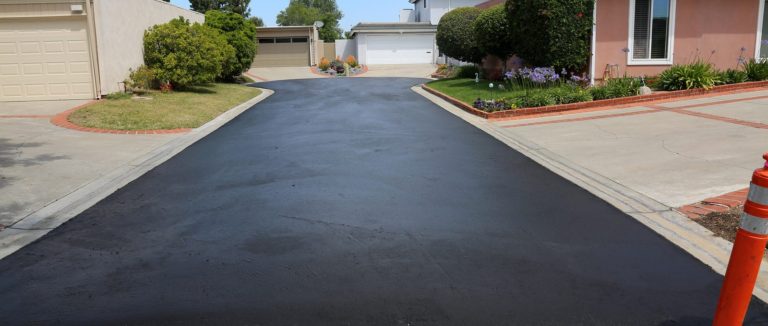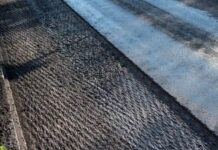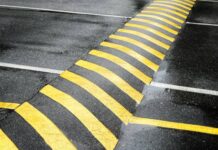How Much Does Sealing Pavers Cost? Tips for Budgeting Your Project
When it comes to maintaining the beauty and longevity of your paved surfaces, one question often arises: how much does sealing pavers cost? Whether you’re considering sealing your driveway, patio, or walkway, the cost can vary significantly based on several factors. In this comprehensive guide, we’ll explore the costs associated with both DIY sealing and hiring professional services, helping you make an informed decision for your home.
Understanding Paver Sealing
Paver sealing involves applying a protective coating to your pavers to enhance their appearance and increase their lifespan. This process helps protect against weather elements, oil spills, and stains while preventing weed growth between pavers. Regular sealing can also minimize fading and damage from UV rays, ensuring your outdoor spaces remain beautiful for years to come.
Benefits of Sealing Pavers
- Enhanced Aesthetics: Sealing brings out the natural colors and textures of your pavers, making them look more vibrant and new.
- Protection from Stains: A sealant forms a barrier that prevents liquids from penetrating the surface, protecting against spills and stains.
- Increased Durability: Sealants help resist cracking and damage from freeze-thaw cycles, extending the life of your pavers.
- Reduced Maintenance: Sealed surfaces are easier to clean and maintain, saving you time and effort in the long run.
- Weed and Moss Prevention: Sealants help prevent weed growth between pavers, keeping your outdoor spaces tidy and well-maintained.
How Much Does Sealing Pavers Cost?
When considering the cost of sealing pavers, several factors come into play. Generally, you can expect to pay between $0.15 and $0.30 per square foot for sealing pavers. For a typical residential driveway or patio, this can range from $150 to $300 for a space measuring around 1,000 square feet.

Breakdown of Costs
- Materials: The type of sealant you choose will significantly affect the overall cost. There are various options available, including:
- Water-based sealers: Generally less expensive and easier to clean up, but may require more frequent reapplication.
- Solvent-based sealers: More durable and long-lasting but typically come with a higher price tag.
- Penetrating sealers: These protect the pavers from within and are often more expensive but provide superior protection.
- Labor: If you decide to hire professionals, labor costs can add up. The average cost for professional sealing services ranges from $0.50 to $2.00 per square foot, depending on your location and the complexity of the job.
- Additional Services: If your pavers are heavily soiled or damaged, you may need to invest in cleaning or repairs before sealing, which can further increase your costs.
DIY vs. Professional Sealing
When considering sealing your pavers, one of the most significant decisions you’ll face is whether to do it yourself or hire professionals. Both options have their pros and cons, so let’s break them down.
DIY Sealing
Pros:
- Cost Savings: One of the most significant advantages of DIY sealing is the potential cost savings. By doing the work yourself, you can avoid labor costs and only pay for materials.
- Flexibility: You can choose the timing that works best for you without coordinating with a professional’s schedule.
- Personal Satisfaction: Completing the project yourself can provide a sense of accomplishment and pride in your home.
Cons:
- Time-Consuming: DIY sealing can take a considerable amount of time, especially if you’re unfamiliar with the process. Cleaning, preparing, and sealing can be a labor-intensive task.
- Lack of Expertise: Without professional training, you may not achieve the same level of quality as a skilled contractor. This could result in uneven coverage or application issues.
- Potential for Damage: If not done correctly, DIY sealing can lead to damage to your pavers or result in poor adhesion, which may require re-sealing sooner than expected.
Professional Sealing
Pros:
- Expertise: Professional contractors have the experience and knowledge to ensure the job is done correctly. They can identify issues that a DIYer might overlook, such as necessary repairs or proper sealant selection.
- Time-Efficient: Hiring professionals means the job will likely be completed more quickly and efficiently than if you were to do it yourself.
- Quality Assurance: Reputable contractors often guarantee their work, giving you peace of mind that the job will be done right.
Cons:
- Higher Costs: Professional services can be significantly more expensive, especially if your area has high labor rates.
- Less Control: You’ll have to rely on the contractor’s schedule, which may not always align with your availability.
- Potential for Inconsistent Quality: While most professionals will do an excellent job, not all contractors are created equal. It’s essential to do your research and hire a reputable service.
Factors Affecting Sealing Costs
Several factors can influence how much sealing your pavers will cost. Understanding these can help you prepare your budget more accurately.
1. Size of the Area
The larger the area you need to seal, the higher the overall cost. Most contractors will provide a quote based on the total square footage, and larger areas typically have a lower cost per square foot due to economies of scale.
2. Condition of Pavers
If your pavers are in poor condition, additional cleaning or repairs may be required before sealing. This could include pressure washing, filling in cracks, or replacing damaged pavers, which can significantly increase your overall costs.
3. Type of Pavers
The type of pavers you have can also affect the cost. For example, natural stone pavers may require special sealants that can be more expensive, while concrete pavers may be more straightforward to seal.
4. Geographic Location
Your geographic location plays a crucial role in determining sealing costs. Areas with higher costs of living typically see higher labor rates, which can drive up the overall price for professional services.
5. Sealant Type
As mentioned earlier, the type of sealant you choose will impact your costs. Higher-quality sealants may require a larger initial investment but can save you money in the long run by extending the lifespan of your pavers and reducing maintenance needs.

Comparing Prices: DIY vs. Professional Services
To better illustrate the cost differences between DIY sealing and hiring professionals, let’s take a closer look at the estimated expenses for both options.
DIY Sealing Costs
- Materials:
- Sealant: $100 to $200 (for a 1000 sq ft area)
- Cleaning Supplies: $20 to $50 (pressure washer rental or cleaning products)
- Tools: $25 to $100 (brushes, rollers, sprayers)
Total Estimated DIY Cost: $145 to $350
Professional Sealing Costs
- Labor and Materials:
- Sealant: $100 to $200 (included in service fee)
- Labor: $500 to $1,500 (for a 1000 sq ft area, depending on location and complexity)
Total Estimated Professional Cost: $600 to $1,700
Summary of Costs
| Sealing Option | Estimated Cost |
|---|---|
| DIY | $145 to $350 |
| Professional | $600 to $1,700 |
From this comparison, it’s clear that while DIY sealing can offer significant cost savings, professional services provide expertise and efficiency that may be worth the investment.
Maintenance After Sealing
Once you’ve sealed your pavers, regular maintenance is crucial to ensure they remain in good condition. Here are some tips to help you care for your newly sealed surface:
1. Regular Cleaning
Periodically clean your pavers to remove dirt, debris, and stains. A simple pressure wash can help maintain their appearance without damaging the sealant.
2. Address Stains Promptly
If you notice any spills or stains, clean them up immediately to prevent them from penetrating the sealant. Use appropriate cleaning solutions to tackle specific types of stains, such as oil or food.
3. Reapply Sealant as Needed
Depending on the type of sealant used, you may need to reapply every 1-3 years. Monitor the condition of your pavers and consult with a professional to determine the best time for re-sealing.
Understanding how much does sealing pavers cost is essential for any homeowner looking to maintain their outdoor spaces. Whether you choose to tackle the project yourself or hire professionals, knowing the factors that influence costs and the benefits of each approach will help you make the best decision for your needs.
At Commonwealth Paving, we offer professional sealing services that ensure your pavers look great and last longer. For a free estimate or to discuss your paving needs, don’t hesitate to contact us at +1 502 459 7283 or visit us at 136 Outerloop, Louisville, Kentucky 40214. Let us help you enhance the beauty and durability of your paved surfaces!
How Much Does Sealing Pavers Cost? Tips for Budgeting Your Project
Maintaining the aesthetic appeal and durability of your paved surfaces is essential, and one of the most effective ways to achieve this is through sealing. However, before embarking on this project, you may wonder: how much does sealing pavers cost? This guide will provide you with comprehensive insights into the costs involved, factors affecting the budget, and tips for budgeting your sealing project.
Understanding Paver Sealing
Paver sealing involves applying a protective coating to various surfaces, such as driveways, patios, and walkways. This coating enhances the appearance of your pavers and protects them from damage caused by environmental elements, oil spills, and stains. Regular sealing can also prevent weed growth between pavers and minimize fading from UV exposure.
Why Seal Your Pavers?
- Enhanced Appearance: Sealing pavers enhances their color and texture, making them look newer and more vibrant.
- Protection from Stains: A good sealant forms a barrier against spills, preventing stains from setting into the pavers.
- Increased Longevity: Sealing helps protect pavers from freeze-thaw cycles and UV damage, extending their lifespan.
- Maintenance Ease: Sealed surfaces are easier to clean, reducing the time and effort needed to maintain your outdoor spaces.
- Weed Control: Sealing prevents weeds and moss from growing between the pavers, maintaining a tidy appearance.
How Much Does Sealing Pavers Cost?
The question of how much does sealing pavers cost can be answered with a range of figures. On average, the cost typically falls between $0.15 to $0.30 per square foot. However, this cost can vary based on various factors, including the size of the area, the condition of the pavers, and whether you choose to do it yourself or hire a professional.

Cost Breakdown
- Materials: The type of sealant you choose will significantly affect the overall cost. Here are some common options:
- Water-Based Sealers: These are generally more affordable, typically ranging from $20 to $50 per gallon. They’re easier to clean up and less harmful to the environment but may require more frequent reapplication.
- Solvent-Based Sealers: More durable and longer-lasting, solvent-based sealers usually cost between $30 to $100 per gallon. They can provide superior protection but come with a higher price tag.
- Penetrating Sealers: These sealants protect from within and typically cost $50 to $150 per gallon.
- Labor: If you decide to hire professionals, labor costs will be an additional factor. On average, professional sealing services range from $0.50 to $2.00 per square foot, depending on your location and the complexity of the job.
- Additional Services: If your pavers require cleaning or repairs before sealing, you may need to factor these costs into your budget. This can include pressure washing, crack filling, or replacing damaged pavers, which can add up quickly.
DIY vs. Professional Sealing
One of the biggest decisions you’ll face when considering sealing your pavers is whether to tackle the project yourself or hire professionals. Both options come with their own advantages and disadvantages.
DIY Sealing
Pros:
- Cost Savings: By opting for a DIY approach, you can save significantly on labor costs.
- Flexible Scheduling: You can choose when to work on your project without relying on a contractor’s availability.
- Personal Accomplishment: Completing the project yourself can be a rewarding experience.
Cons:
- Time-Consuming: DIY sealing can be labor-intensive, especially if you’re unfamiliar with the process. It can take longer to prepare, clean, and apply the sealant.
- Lack of Expertise: Without professional experience, you may not achieve the desired results, leading to uneven application or other issues.
- Risk of Damage: Improper application can lead to damage to your pavers, necessitating re-sealing sooner than anticipated.
Professional Sealing
Pros:
- Expertise: Professionals have the experience and training to ensure a high-quality finish. They can also identify issues that may require attention before sealing.
- Efficiency: Professionals typically complete the job more quickly than a DIYer, saving you time and effort.
- Quality Assurance: Many reputable contractors offer guarantees for their work, providing you peace of mind.
Cons:
- Higher Costs: Professional services can be significantly more expensive than doing it yourself.
- Scheduling Constraints: You may need to work around the contractor’s availability.
- Potential for Inconsistent Quality: Not all contractors provide the same level of service, so it’s important to do your research.
Factors Affecting Sealing Costs
Several factors can influence the overall cost of sealing your pavers. Understanding these factors can help you prepare your budget more accurately.
1. Size of the Area
The larger the area you need to seal, the higher the overall cost. Most contractors provide quotes based on square footage, and larger areas usually have a lower cost per square foot due to economies of scale.
2. Condition of Pavers
If your pavers are heavily soiled or damaged, you may need to invest in additional cleaning or repairs before sealing. This could include pressure washing, filling in cracks, or replacing damaged pavers, which can significantly increase your overall costs.
3. Type of Pavers
The type of pavers you have can also impact sealing costs. Natural stone pavers may require special sealants that can be more expensive, while concrete pavers may be easier and cheaper to seal.
4. Geographic Location
Your location plays a crucial role in determining sealing costs. Areas with a higher cost of living typically see higher labor rates, which can drive up the overall price for professional services.
5. Sealant Type
The type of sealant you choose will directly affect your costs. Higher-quality sealants may require a larger initial investment but can save you money in the long run by extending the lifespan of your pavers and reducing maintenance needs.
Tips for Budgeting Your Sealing Project
Now that you have a clearer understanding of how much sealing pavers cost, here are some tips to help you budget your project effectively.
1. Get Multiple Quotes
If you’re considering hiring a professional, it’s wise to obtain quotes from multiple contractors. This will give you a better understanding of the going rate in your area and help you identify potential savings.
2. Factor in All Costs
When budgeting, don’t just consider the cost of the sealant and labor. Be sure to include any additional expenses, such as cleaning or repairs, as well as any tools you may need if you opt for a DIY approach.
3. Choose the Right Sealant
Investing in a high-quality sealant can save you money in the long run by extending the lifespan of your pavers and reducing the frequency of re-sealing. Research different options and choose one that fits your budget and needs.
4. Plan for Maintenance
Regular maintenance can help prolong the life of your sealed pavers. Be sure to budget for cleaning and re-sealing as needed, which can help prevent costly repairs in the future.
5. Timing Matters
Consider the timing of your sealing project. In some cases, you may find better deals or discounts during the off-season. Additionally, weather conditions can affect the quality of the sealing, so aim to schedule your project when conditions are ideal.
6. DIY Considerations
If you decide to go the DIY route, be realistic about your skills and the time you can commit. Factor in the costs of renting or purchasing tools and materials, and ensure you allocate enough time for the entire process.
Common Questions About Paver Sealing Costs
How much does sealing pavers cost per square foot?
On average, sealing pavers costs between $0.15 and $0.30 per square foot for materials alone. When factoring in labor, professional services can range from $0.50 to $2.00 per square foot.
Is it worth sealing pavers?
Yes, sealing pavers is worth the investment as it enhances their appearance, protects against stains, and extends their lifespan. Regular sealing can save you money in the long run by reducing maintenance needs and preventing damage.
How often should you seal pavers?
The frequency of sealing depends on the type of sealant used and environmental factors. Generally, it’s recommended to seal pavers every 1 to 3 years, depending on the wear and tear they experience.
Can I seal my pavers myself?
Yes, sealing your pavers can be a DIY project if you have the necessary tools and experience. However, be prepared to invest time and effort to ensure a successful application.
What should I do before sealing my pavers?
Before sealing, ensure your pavers are clean and in good condition. This may involve pressure washing, filling in cracks, and addressing any damages. Proper preparation is key to achieving the best results.
Determining how much does sealing pavers cost is essential for homeowners looking to maintain their outdoor spaces. By understanding the factors that influence costs, comparing DIY and professional options, and budgeting effectively, you can make an informed decision that fits your needs and budget.
If you’re considering sealing your pavers, contact Commonwealth Paving at +1 502 459 7283 for a free estimate. Located at 136 Outerloop, Louisville, Kentucky 40214, we’re here to help you enhance the beauty and durability of your paved surfaces!
Address
Commonwealth Paving, 136 Outerloop, Louisville, Kentucky 40214
Phone: 502-459-7283, Fax: 502-456-2678
Opening Hours
| Monday | 9:00 AM – 5:00 PM |
| Tuesday | 9:00 AM – 5:00 PM |
| Wednesday | 9:00 AM – 5:00 PM |
| Thursday | 9:00 AM – 5:00 PM |
| Friday | 9:00 AM – 5:00 PM |
| Saturday | Closed |
| Sunday | Closed |






